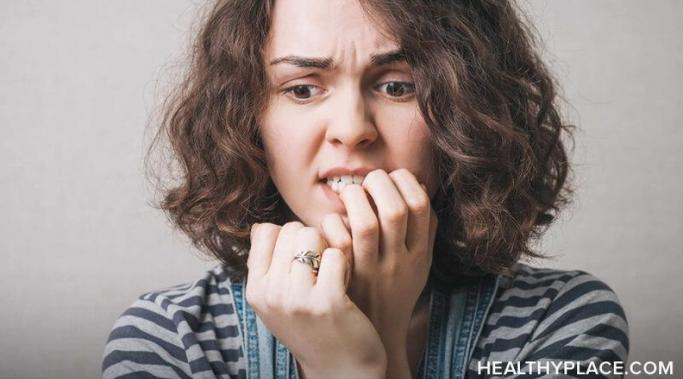Blogs
My goal for the Recovering from Mental Illness blog will be to discuss resilience, offer encouragement and share coping techniques I've found helpful in my own mental health recovery. I will also share my mental health challenges so that we can learn from one another.
PTSD and suicide thoughts (plus how to shift them) is a topic of frequent discussion in any community of survivors struggling with symptoms of posttraumatic stress disorder. Really, how could it not be? We're asked to live inside a mind that feels crazy and a body that behaves in ways out of our control. At some point, it's reasonable for anyone to just want to be set free.
Of course, suicide is always the wrong answer. Every day, we learn more about PTSD recovery and how to heal, which means that there is always hope for feeling better. In fact, with the many approaches now available for healing work recovery is more like a Choose Your Own Adventure than ever before. It took me 10 modalities to reach the end of PTSD symptoms.
If I had given up and given in to the dark PTSD suicide thoughts a whole life would have been lost that really has been more than worth living.
In one of my earlier blogs, I discussed something called body-focused repetitive behaviors. These are behaviors almost every human being deals with and doesn’t realize it is a different version of self-harm – picking hang nails, biting nails, picking at zits or pimples are just a few common ones. Typically, these behaviors are not done to distract, release frustration or to emotionally connect to the pain. Usually, body-focused repetitive behaviors are done without realization.
So, why am I bringing this up again? It goes back to my face and how I fell on it this weekend.
Vacation with your special needs child require a special set of rules. Not unlike some of the rules you may have in place at home. Having rules when vacationing allows me peace of mind. Vacationing with your special needs child isn't easy, but it can be fun. Here are some rules I use when traveling with Bob.
Learn how to build healthy self-esteem and unbreakable confidence in your child with simple tips for everyday interactions.
Ayurveda means "perfect knowledge" in Sanskrit. It is a traditional medicine from Ancient Indian. The sister of Yoga. (If you have never heard of Ayurveda, do a search and you'll find loads of information!)
The assumption in Ayurveda is that there are three elemental substances in the body called doshas. They are vata, pitta, and kapha. At each moment these doshas can be in states of aggravation cause emotional and physical health to be compromised. The treatment of Ayurveda seeks to pacify these doshas.
When it comes to what it takes to heal PTSD, forgiveness is a topic that requires a lot of thought. On the surface, it’s easy to believe that when we forgive we condone (of course, that’s not the case!). Even if, intellectually, we know that forgiving does not excuse, it can feel that way and so we shy away from the forgiveness process.
This weekend, I fell on my face. I literally fell onto the sidewalk and currently have the ugliest scab and bruise covering the right side of my face. After I fell onto the cement, pain filled my body. Obviously this is normal when it comes to any accidental scrape or cut or bruise. However, for some reason, memories from my self-harming past popped into my mind. I started thinking to myself, "Why would I have caused so much physical pain to myself just for distraction and escape? Pain hurts."
Recently I was turned on to one of the coolest apps I’ve seen – it’s an app for your smartphone that tracks your sleep. This magical piece of software records your sleep, the sleep phases and any sounds, as well as does a myriad of other things.
This is incredibly useful to a person with a mental illness. People with mental illnesses like depression and bipolar disorder are known to have problems with their sleep and this application can help you pinpoint what’s going on.
LSD and Bipolar Disorder
LSD (Lysergic acid diethylamide, colloquially known as "acid") is an hallucinogenic drug that induces altered states of consciousness. But if you take this illegal drug, does it increase your risk of developing bipolar disorder?







![MP900321102[1]](/sites/default/files/styles/blog_listing/public/uploads/2013/08/MP9003211021.jpg?itok=8gWf99Hi)